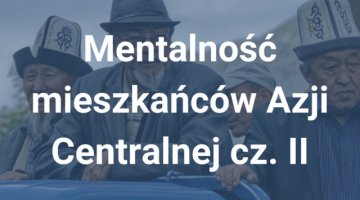The South Korean model of cooperation with Central Asian countries
In June, efforts were made to enhance economic and political cooperation between South Korea and Central Asian countries. K-Silk Road Cooperation, the first-ever South Korean strategy for the region, was announced at the beginning of the month. From 10 to 15 June, South Korean President Yoon Suk Yeol made official visits to Turkmenistan, Kazakhstan, and Uzbekistan. Following these meetings, politicians and experts continued discussions concerning mineral resources and their supply chains in the subsequent weeks.
During the visits, involving over 80 South Korean business representatives, it was announced that the South Korea-Central Asia format would be elevated to the level of heads of state. It was also announced that the inaugural presidential summit would take place in Seoul in 2025. Several dozen agreements and preliminary government and corporate deals were signed, including those with Hyundai Engineering Co., Ltd (HEC) and SK Ecoplant. The most important deals concerned: the establishment of a regional advanced technology cluster in Uzbekistan from 2025 to 2027; financing projects in Uzbekistan worth up to a total of $2 billion (including the purchase of six Hyundai high-speed trains); the continuation of Kazakh oil and uranium exports from the region and continuing joint efforts to start lithium mining; the deal under which HEC sold Turkmengaz gas desulphurisation units (with a capacity of 10 bcm) for use in Turkmenistan’s largest gas field, coupled with drilling during the fourth phase of work on this field; and the implementation of remedial actions by HEC to restart a polymer factory in western Turkmenistan.
Commentary
- Relations between Central Asian countries and South Korea date back to the 1990s with their main focus being economic cooperation. South Korea has been among the top five trading partners of Uzbekistan (with a trade value of $2.5 billion in 2023) and Kazakhstan (reaching $6 billion last year), and its position in this regard is similar to that of Turkey. Additionally, since the mid-1990s, South Korea has been investing in the region’s industry, mainly the automotive sector, by transferring technology and providing financing. In 1996, Daewoo opened its first factory in Uzbekistan. This spring, a Kia car assembly line was launched in the country, with full production (60,000 units annually) starting next year. Meanwhile, Hyundai is one of the brands to have started car production in Kazakhstan. In Turkmenistan, Korean and Japanese companies built a polymer factory in 2018, worth $3.4 billion. These investments are unique in the region, where most external players (Russia, China, the EU and the US) are primarily interested in exploiting Central Asian natural resources. In this area, South Korea has expanded cooperation with Kazakhstan among other countries, covering importing oil (it was the fourth-largest buyer last year, purchasing 5.5 million tonnes) and uranium, as well as exploring lithium deposits (with a pre-emptive right) valued at $15.7 billion. In 2007, South Korea implemented a joint political consultation mechanism with five regional countries (the South Korea-Central Asia Cooperation Forum, whose secretariat was established in 2017). From the region’s perspective, South Korea does not hinder cooperation with a controversial political agenda, nor does it pose a security threat. South Korean soft power, including its pop culture which is popular in the region, is an important factor in building relations.
- President Yoon Suk Yeol’s visit to Central Asia highlighted the great importance of these countries to South Korea. Uzbekistan and Kazakhstan have become desirable partners for South Korea in terms of securing supply chains and acquiring resources necessary for its energy-intensive and advanced economy. South Korea was the world’s eighth-largest energy consumer in 2022 and is a major player in the automotive industry, including the production of electric vehicle batteries and semiconductors. The South Korean government’s intention is to make their country less dependent on imports from China, including imports of lithium (China controls around 70% of this market). South Korea is also interested in increasing imports of Kazakh uranium (Kazakhstan has been the fourth-largest supplier of this resource to South Korea in recent years). Another important area of cooperation is labour migration, since demographic decline in South Korea has made its labour market relatively open to workers from Central Asia. This labour migration is regulated and promotes workforce education. In 2024, 37,200 Uzbek citizens (out of a total of 165,000 workers) were accepted as part of the organised labour migration system and received work permits in South Korea. The strategy for the region, which Yoon Suk Yeol promoted during his visit, and which was approved by the presidents of the three countries he visited, has been devised also to serve Seoul’s interests. This strategy is based on four areas: raw materials and minerals, development aid, cultural and humanitarian exchange, and cooperation between governments and businesses.
- South Korea’s offer appears appealing and credible to the three Central Asian countries. They intend to expand this cooperation and gain momentum for modernisation. These countries believe that South Korea stands out in this regard, compared to Russia, China and the West. Given its engagement in the region so far, the creation of a comprehensive technology cluster in Uzbekistan seems to be a viable plan (the sectors involved will include critical minerals, semiconductors, chemicals, machinery production and green energy). Labour migration to South Korea is an area of collaboration that is set to develop, especially considering efforts to reduce dependence on the Russian labour market. Guarantees of continuing oil imports are an essential element of Kazakhstan’s relations with South Korea – this year, these imports could be jeopardised due to security issues in the Red Sea and increased logistical costs of deliveries. In turn, Turkmenistan sees South Korea as a partner capable of modernising its gas sector. This sector is geared towards exports to China and is one of the main pillars of Turkmenistan’s economy.
- The rapid development of relations between Central Asian countries and South Korea is making their foreign policies more oriented towards the Far East. Seoul has been building its position in the region for years, the most vivid manifestation of it being the functioning of the South Korea–Central Asia format. This is a cooperation framework (the so-called C5+) that the EU, the US, Russia and China started developing only a few years ago. The fact that all recent South Korean presidents have visited Central Asia over the past decade (in 2011, 2014, 2019, and June this year) proves that Seoul is genuinely interested in this region. Political cooperation between the region’s countries and Seoul is expected to strengthen, culminating in the South Korea–Central Asia summit in 2025. This will enhance the position of the Central Asian countries vis-à-vis Russia and China, although these relations do not have the potential to balance the influence of these two great powers.




